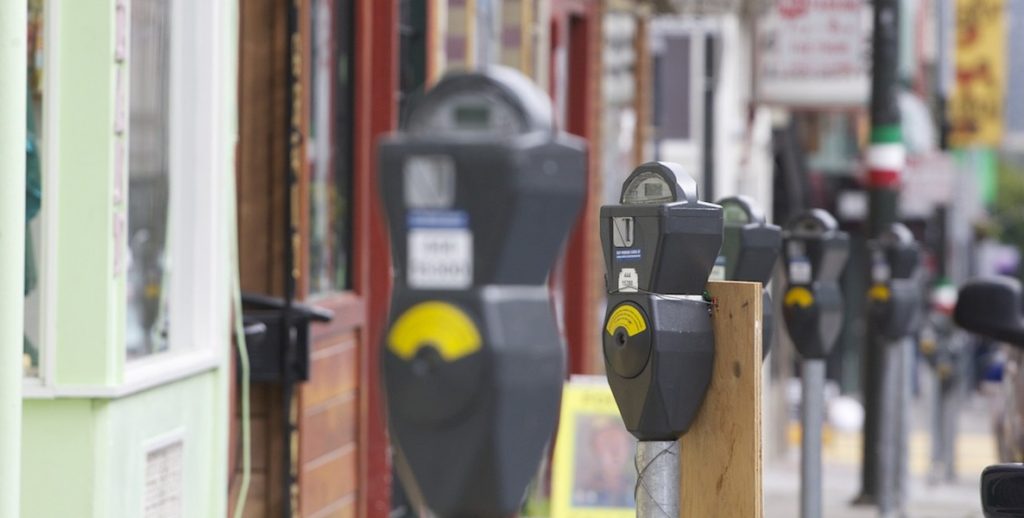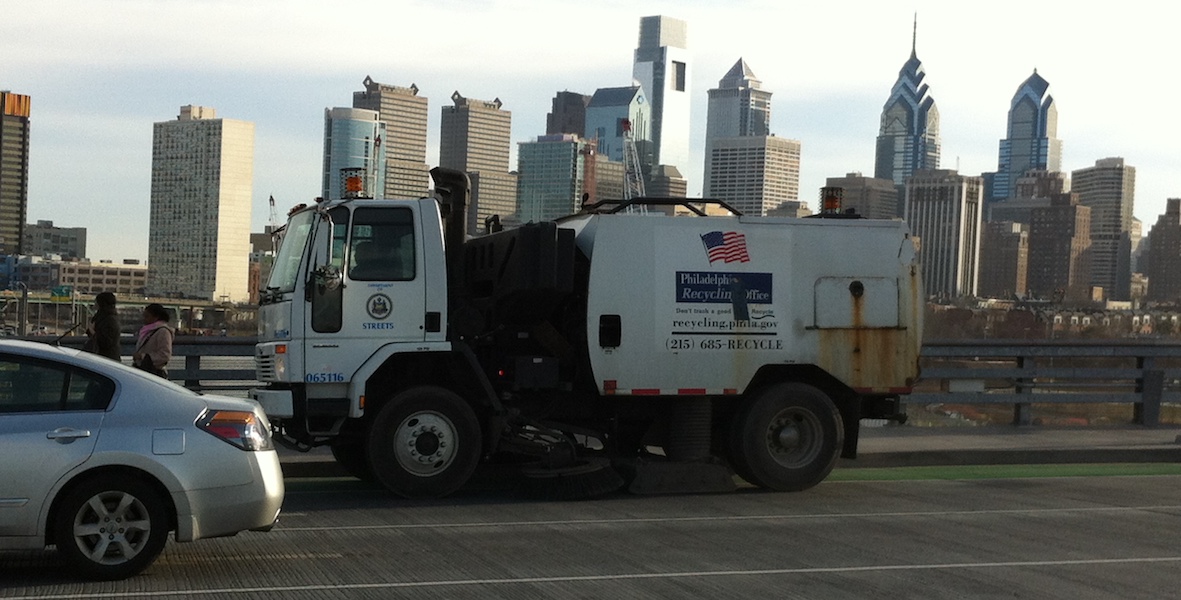Several weeks ago, after a Reality Check column about the disproportionate amount of parking tickets in black neighborhoods, City Council announced a hearing about the Philadelphia Parking Authority. The Reality Check conversation—and others beyond the program—appears to have inadvertently revived Councilwoman Jannie Blackwell’s parking amnesty bill. It’s necessary legislation offering one-time forgiveness of non-moving violation-related fines and fees “issued three or more years ago.”

Interestingly enough, that bill was introduced back in February 2016 (not only another year, but another world). Before our debate here, that bill was either largely lampooned as “are you serious?” by Philly’s well-to-do class that doesn’t have to worry about losing their job from a car boot, or just didn’t get the public juice needed to prioritize it. Now, on Wednesday morning, it will finally get a hearing.
Hopefully that hearing will instigate a refreshed conversation on not just the PPA’s revenue collection methods, but also on the revenue itself. At any first glance, it is still unclear exactly how much loot PPA generates; most don’t even know how much it generates for the Philadelphia School District, which many state and local officials use to justify state-management of PPA and the suspiciously pernicious way it goes about collecting money.
I pursued answers to these questions last week on the radio, in a talk with the PPA’s Executive Director Clarena Tolson. (You can listen to that interview here in all its 25-minute glory). And even though she was gracious enough to spend a little more time than scheduled on the show, we still left the conversation with a lot more unresolved questions than answers.
First, though, we heard from a Reality Check listener representing himself as a “former parking authority employee,” who confirmed that PPA really does target poorer, fixed-income and black and brown neighborhoods the most. Guardian Civic League founder and president Rochelle Bilal also shared her own personal ticket travails, from receiving outrageous fines for violations that shouldn’t have been issued in the first place, to spending nearly three hours at the Parking Violations Branch (PVB) attempting to resolve it.
Both stressed that PPA targets those they deem most unlikely to challenge those fines, either out of fatigue, sometimes fear of traffic judge wrath or fines unknown, or the inability to make it down to Filbert Street due to employment, family and other obligations.
“You know the vast majority of people at traffic court are mostly black and some brown. That’s enough to tell you something’s wrong,” said another listener.
Tolson refuted the claims. “[We’re] not unlike the police department, the fire department, or any other type of agency who need the protection and guidance that people cannot provide for themselves,” offered Tolson in one of the most creative descriptions of a parking authority ever crafted. The comparison to public safety agencies was quite impressive.
And if you have problems with PVB, you should take it up with the Bureau of Administrative Adjudication, a City of Philadelphia agency “that’s separate from the parking authority,” Tolson made sure to underscore. Her argument is that she has little control over the way PVB staff and judges treat folks simply trying protect their bank accounts. Yet, with 90 percent of violations coming from PPA, one would imagine the PPA director having a tremendous amount of leverage in that relationship and, perhaps, stirring some change if she really wanted to.
$135 million from street operations, meters, tickets and other items; $73 million from the airport; $15 million from red light cameras; and $16 million from parking spaces. That’s still $35 million unaccounted for or money we don’t know the origins of.
This was just one of a few fascinating buck-passing moments during the conversation. She made sure to fast dodge the ongoing audit by the Pennsylvania Auditor General (yeah, that one we’ve heard nothing about since January): “I am aware of the fact that there is an audit of the agency … and that I came right after the previous director.”
Yet, we’ve noticed the PPA recently put out a hiring call for an Internal Compliance Auditor “to provide independent and objective assurance of optimized operation by providing a systematic, disciplined approach to evaluate and improve the effectiveness of the control and governance processes of the … Authority.” That’s an essential move for any agency, but someone is definitely preparing for something.
“Making money is a necessary function, but it’s not our mission or purpose,” said Tolson. Admittedly, she lays out a good case for rule of law and order in a city that could otherwise be chaotic. Sometimes people do park in wondrously stupid and inconsiderate ways, whether they block a fire hydrant or a spot reserved for a person with disabilities. On that score, Tolson is very much right. Without a parking authority, Philadelphia would be a twisted, mangled mass of moving metal.
But it still doesn’t explain, in the end, how the Authority totally manages and allocates the more than a quarter of a billion dollars in revenue it generated in Fiscal Year 2017. Tolson did share that PPA generated $274 million last fiscal year—the PPA’s Financial Statement says $260 million (we’re not sure why there’s a $14 million discrepancy between her statement and the one above … or maybe she didn’t have the statement sheet in front of her).
She broke some of that down for us: $135 million from street operations, meters, tickets and other items; $73 million from the airport; $15 million from red light cameras; and $16 million from parking spaces. That’s still $35 million unaccounted for or money we don’t know the origins of, but we’ll let that slide for the moment.
Either way, that’s a lot of cash coming in—approximately 6 percent of the City’s $4.4 billion budget (for FY 2018). Out of that, only $47.8 million went to the City and the schools—the city received, according to Tolson, $37.5 million, while the school district received only $10.3 million of that amount.
Using Tolson’s figures, that means the city and school district together only received about 19 percent of PPA revenue overall. Ultimately, Philadelphia schools only receive less than 4 percent of the revenue generated from parking tickets and other streams.
The impression given, however, is that state takeover of PPA guarantees this generous windfall of support for the Philadelphia school district. Residents, especially the dispossessed and disenfranchised who are the school district’s most desperate patrons, are supposed to suck it up and simply tolerate the abuse from enforcement officers and traffic court adjudicators … because it’s “for the kids.”
Yet, most people don’t realize that the $10.3 million take barely scratches the surface: Iit’s only a quarter of a percentage point (0.4 percent) of the school district’s $2.9 billion budget. One could also ask about the $100.4 million in “salaries and administrative costs paid to employees” and why that’s nearly 40 percent of revenue generated when schools only walk away with less than 4.
I also wonder why Philadelphia School District Superintendent William Hite isn’t all that loud about this; if I were Superintendent, especially one faced with constant deficit projections, I would forcefully advocate for a greater share of PPA revenues—which grew by 7 percent over one fiscal year.
The impression given is that state takeover of PPA guarantees this generous windfall of support for the Philadelphia school district. Residents, especially the dispossessed and disenfranchised who are the school district’s most desperate patrons, are supposed to suck it up and simply tolerate the abuse from enforcement officers and traffic court adjudicators … because it’s “for the kids.”
A deeper look into PPA’s numbers is warranted, particularly the amount that goes to the school district. Presumably, this is what the Auditor General’s eventual report will do. Meanwhile, Tolson made a good point during another masterful deflection: Residents should start asking the Pennsylvania state legislature about the funding formula that determines how much the city and schools receive from the PPA.
They should also demand a proper reckoning from the PPA itself. After all, it’s our fees, fines and livelihoods that fund it. Where is the money going?
Charles D. Ellison is Executive Producer and Host of “Reality Check,” which airs Monday–Thursday, 4-7 p.m. on WURD Radio (96.1FM/900AM). Check out The Citizen’s weekly segment on his show every Tuesday at 6 p.m. Ellison is also Principal of B|E Strategy, the Washington Correspondent for The Philadelphia Tribune and Contributing Politics Editor to TheRoot.com. Catch him if you can @ellisonreport on Twitter.


